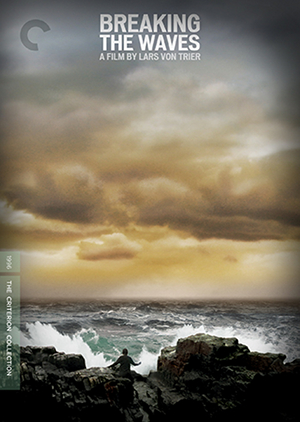 Cast: Stephan Knüpfer, Pierre-Laurent Aimard
Cast: Stephan Knüpfer, Pierre-Laurent Aimard
Director: Robert Cibis, Lilian Franck
Country: Germany | Austria
Genre: Documentary | Music
Official Trailer: Here
Purchase Now!
Editor’s Note: Pianomania was released by First Run Features on February 14th, 2012
How does one create narrative conflict when choosing to focus their lens on the fastidious perfectionism of concert pianists and the technicians that help them achieve that “perfect” sound? These guys are operating on a different frequency than me, breathing some sort of rarefied air and are maddeningly meticulous about their work. They can’t quite quantify the sound they are trying to achieve with words, as vocal interaction cannot give justice to the minute details of the tonal perfection that they strive to achieve. These are specialists operating at the highest level of their craft, using this craft to create grandiose forms of artistic expression in concert halls that make men small in their monumental extravagance. That is the odd irony behind Pianomania and the idiosyncratic characters that occupy this world. The film ironically implies that these archaic human inventions and our unique ability to express ourselves through artistic abstractions is the very stuff that makes humankind seem small.
Pianomania starts with an evocative amalgam of vibrant sounds as each note struck on the piano seems to correlate with the streets of Vienna in a perfect harmony of vision and sound. That sort of beauty requires careful planning and labor that those uninitiated to that world have will no frame of reference for. Every component of the piano is manipulated for months or even years before the concert pianist strikes the first note in front of an audience. The pianist must work with a highly skilled technician to painstakingly achieve the desired sound. This film concentrates on one such master manipulator, and we fall Stefan Knüpfer as he works with extremely particular concert pianists to achieve tonal perfection. It takes endless trial and error, innovations, scrapped innovations, and incomprehensible amounts of patience to manipulate not only the piano, but the pianist as well. The pianists operate on a different frequency than most people, and their idiosyncratic nature is what allows them to throw themselves completely in to their work. Stefan acts as some sort of medium between pianist and piano, able to understand both in order to translate abstract descriptions of sounds that the pianist wishes to achieve in to something tangible. This act of translation is the central focus of Pianomania and acts as an unexpected source of narrative conflict, humor, frustration, and ultimately triumph.
Stefan acts as some sort of medium between pianist and piano, able to understand both in order to translate abstract descriptions of sounds that the pianist wishes to achieve in to something tangible. This act of translation is the central focus of Pianomania and acts as an unexpected source of narrative conflict, humor, frustration, and ultimately triumph.
 Each piano has its own temperament and personality just as each pianist comes with their own set of personality quirks that a technician must overcome to find the necessary synchronicity. The Steinway grand pianos are a crucial character in this documentary, and each is introduced to us as we become fascinated by worlds we didn’t even know existed. We become familiarized with the personalities of both men and “musical machine”. The selling of one piano becomes the source of narrative conflict as its replacement lacks the “magic” that the other one had. It would take a tremendous amount of careful manipulation down to the tiniest detail to get Steinway number 245 ready for Pierre-Laurent Aimard’s recording sessions, and Stefan is likely the only person in the world that can understand both the language of piano and pianist well enough to achieve this. That kind of specialization requires an extremely neurotic nature, and one has to be slightly disconnected from reality in order to find that special genesis. It is that genesis that makes people larger than life despite being dwarfed by the enormity of the concert halls and the intricacy of the pianos. Even something as insignificant as particles of dust has the potential to thwart or help them on their path to complete realization of the artistic intent. One of the beautiful ironies of the universe is that the harder one pushes for perfection the more muddied the waters can become. It would require endless trial and error to achieve that perfection, but ultimately it is the happy accidents that push them closest to realizing their goal.
Each piano has its own temperament and personality just as each pianist comes with their own set of personality quirks that a technician must overcome to find the necessary synchronicity. The Steinway grand pianos are a crucial character in this documentary, and each is introduced to us as we become fascinated by worlds we didn’t even know existed. We become familiarized with the personalities of both men and “musical machine”. The selling of one piano becomes the source of narrative conflict as its replacement lacks the “magic” that the other one had. It would take a tremendous amount of careful manipulation down to the tiniest detail to get Steinway number 245 ready for Pierre-Laurent Aimard’s recording sessions, and Stefan is likely the only person in the world that can understand both the language of piano and pianist well enough to achieve this. That kind of specialization requires an extremely neurotic nature, and one has to be slightly disconnected from reality in order to find that special genesis. It is that genesis that makes people larger than life despite being dwarfed by the enormity of the concert halls and the intricacy of the pianos. Even something as insignificant as particles of dust has the potential to thwart or help them on their path to complete realization of the artistic intent. One of the beautiful ironies of the universe is that the harder one pushes for perfection the more muddied the waters can become. It would require endless trial and error to achieve that perfection, but ultimately it is the happy accidents that push them closest to realizing their goal.
…Stefan is likely the only person in the world that can understand both the language of piano and pianist well enough to achieve this. That kind of specialization requires an extremely neurotic nature, and one has to be slightly disconnected from reality in order to find that special genesis. It is that genesis that makes people larger than life despite being dwarfed by the enormity of the concert halls and the intricacy of the pianos.
 I entered this Pianomania viewing with an incorrect notion of the nature of the people that occupy this world. I tend to be more drawn to accidental greatness through fate and imperfection than I am toward the level of care that these people must put in to their work. Classical pianists seem as disconnected from my reality and inner philosophies as one could imagine, so how could I possibly relate to the people that occupied this very different reality from my own? It helps that the filmmakers have created a narrative in which to find conflict and triumph over adversity. What I discovered is that despite outward appearances, these men are closer to my own philosophies than I would have originally anticipated. They are seekers in this world, and possibly possess the same existential fatalism that colors my world. I seek something greater than the sum of humanity in my passion for cinema and they seek such greatness in concert halls and absolute sonic perfection. The music is bigger than the person that plays it, and they are preserving the triumphs of the human experience through their search for uncompromising perfection. Despite my fatalism concerning the ultimate fate of humanity, I’m glad that there are artists and craftsmen out there that push for excellence and will settle for nothing less than perfection. They are out there hedging the bets for all of humanity while the rest of us are fine with “good enough”.
I entered this Pianomania viewing with an incorrect notion of the nature of the people that occupy this world. I tend to be more drawn to accidental greatness through fate and imperfection than I am toward the level of care that these people must put in to their work. Classical pianists seem as disconnected from my reality and inner philosophies as one could imagine, so how could I possibly relate to the people that occupied this very different reality from my own? It helps that the filmmakers have created a narrative in which to find conflict and triumph over adversity. What I discovered is that despite outward appearances, these men are closer to my own philosophies than I would have originally anticipated. They are seekers in this world, and possibly possess the same existential fatalism that colors my world. I seek something greater than the sum of humanity in my passion for cinema and they seek such greatness in concert halls and absolute sonic perfection. The music is bigger than the person that plays it, and they are preserving the triumphs of the human experience through their search for uncompromising perfection. Despite my fatalism concerning the ultimate fate of humanity, I’m glad that there are artists and craftsmen out there that push for excellence and will settle for nothing less than perfection. They are out there hedging the bets for all of humanity while the rest of us are fine with “good enough”.
DVD Extras:
This DVD from First Run Features contains a transcript of a director Q&A session that is brief but highly informative. It reflects on the bigger picture and that search for something larger than one’s self for the sake of elevating all of humanity. It also talks about the compromises that are necessary for all forms of artistic expression, but some thresholds are set a bit lower than others. It is that unwillingness to settle for “good enough” that separates these perfectionists from the rest of us, but there are compromises in their world too.
The Q&A session also gives some insight in to the construction of the 5.1 surround sound track, which imperfectly captures the minor tonal changes as the artists search for the perfect sound. This DVD demands more than your laptop speakers will be able to provide in order to fully appreciate the results of Stefan’s efforts.
[notification type=”star”]70/100 ~ GOOD. I entered this Pianomania viewing with an incorrect notion of the nature of the people that occupy this world. I tend to be more drawn to accidental greatness through fate and imperfection than I am toward the level of care that these people must put in to their work. Classical pianists seem as disconnected from my reality and inner philosophies as one could imagine, so how could I possibly relate to the people that occupied this very different reality from my own? It helps that the filmmakers have created a narrative in which to find conflict and triumph over adversity. [/notification]


